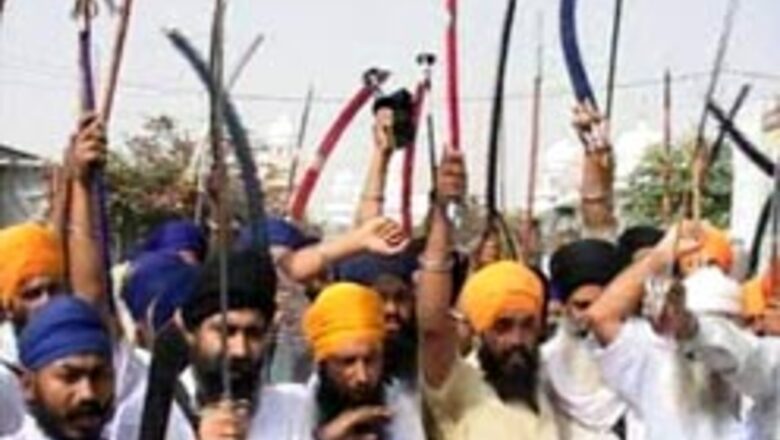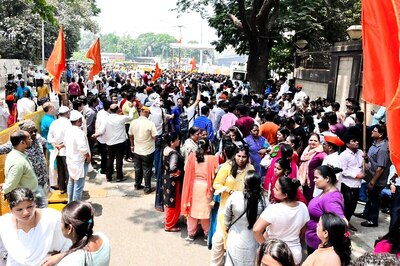
views
Toronto: Baljinder Badesha never imagined that his religious devotion would compel him to race a motorcycle around an Ontario speedway to test whether turbans unravel at high speeds.
The bizarre image of 39-year-old Badesha's experiment last year – conducted under the auspices of the Ontario Human Rights Commission – was evoked during a constitutional challenge to a law that forces motorcycle riders to wear a helmet.
Badesha's counsel Mel Sokosky told Judge James Blacklock yesterday that in order to disprove a Crown theory that turbans unravel at high speed and cause accidents, Badesha drove around Cayuga Speedway at 110 kilometres an hour.
Badesha and the human rights commission maintain the helmet law discriminates against Sikhs because their religion obliges them to cover their long hair with nothing else but a turban.
He is fighting a $110 ticket he received in September 2005 for wearing a turban instead of a helmet while riding his motorcycle.
Supported by the Ontario Human Rights Commission, the used car dealer is arguing his religious beliefs require him to wear a turban outside his home and prohibit him from wearing a helmet. Forcing him to wear a helmet violates his human rights, he says.
Mel said his client is far too religious to consider compromising his beliefs. Badesha's desire is not a trivial pursuit," he said. "This is not a game he is playing. He isn't here to waste the court's time. This is a matter of primary importance to Badesha."
"Observant Sikhs are put in the impossible position of choosing between ordinary, everyday activities and observing their faith," said lawyer Scott Hutchison, who is representing the OHRC. "That is religious discrimination."
Hutchison said the Cayuga turban test became necessary after the Crown declared that an expert it had hired proved that turbans unravel rapidly in 100 km/h winds. The Crown's test had been carried out by a professional engineer who purchased a mannequin head, mounted it on a stick and then placed the assemblage in a wind tunnel.
However, he was unable to find a documented case anywhere in the world where a Sikh motorcyclist's turban had unravelled. Skeptical, he persuaded the OHRC to authorize its own test.
After he confronted the Crown with the dramatically different test result, prosecutors conceded that their engineer had grossly miscalculated the force of the wind he had generated to batter the imitation head, Hutchison said.
In fact, the device had been subjected to a 300 km/h wind.
Badesha, father of four, immigrated to Canada in 1989 and had been an avid motorcyclist in his native India, said in an interview yesterday that he was charged in mid-2005, about a month after he purchased his 2003 Honda Shadow.
He never worn helmets, he argued that they should be left alone to make their own decisions about motorcycle gear.
PAGE_BREAK
"Who cares?" Badesha said. "Everybody ends up dead anyway. People die in cars, too. In life, you have to take risks, no matter what."
While the Crown case initially questioned the sincerity of Badesha's religious convictions, its main argument is now based on increased costs to the health system, should helmet less Sikh motorcycle riders end up suffering head injuries.
Hutchison and co-counsel Owen Rees disputed this contention yesterday. They pointed to a study they had done which concluded that, assuming half of all Sikh motorcyclists wear turbans, the increase in serious injuries would be between 0.43 and 2.83 Sikh riders a year.
The study also projected that medical treatment for traumatic brain injuries would increase from $151,700,000 to $151,834,685 - a .00005-per-cent overall increase in the province's annual health-care budget.
Hutchison told the court that the province already licenses motorcycle riders in spite of the fact that they have far more accidents than automobile drivers. "Clearly, the decision to allow motorcycles to be used at all recognises and accepts a significant degree of risk and concomitant social cost," he said.
India and Britain exempt Sikhs from wearing helmets, as do Manitoba and British Columbia, where a human-rights challenge precipitated the exemption.












Comments
0 comment